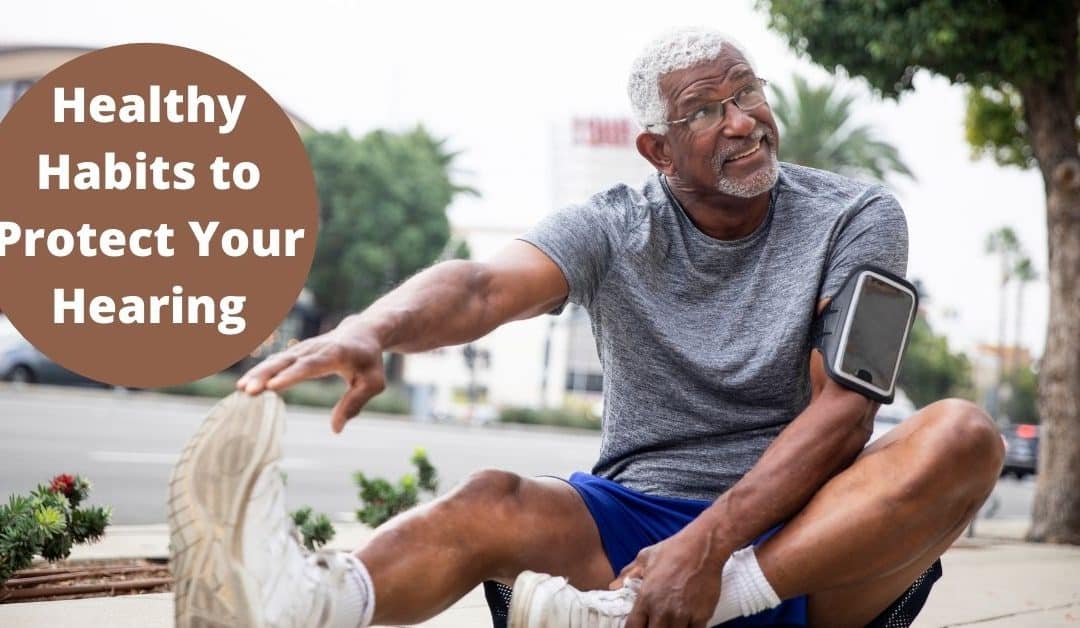We often overlook the importance of prioritizing ear health and hearing health. Hearing loss is one of the most prevalent chronic conditions that people of all ages experience. In the U.S., nearly 1 in 5 people have some degree of impaired hearing, impacting over 48 million people. Loud noises are a potential cause of hearing loss, making it crucial to be aware of the risks.
Damaged hearing is permanent, which is why practicing safety measures is incredibly important. Noisy environments can also impact hearing health, emphasizing the need for taking breaks in quieter settings and wearing hearing protection. Protecting your hearing can significantly reduce your risk of developing hearing loss and improve the quality of your hearing. There are several ways you can take care of your ears and hearing. Useful tips for your daily life include:
Wear Hearing Protection Gear
Exposure to loud noise is a major cause of hearing loss. One-time or consistent absorption of loud noise can damage the hair cells in the inner ear. There are thousands of hair cells in each ear, which help the brain process incoming sounds. These cells do not regenerate, meaning that damage and loss of sensitivity are permanent. Millions of people are exposed to sound at increased levels on a daily basis. According to the Hearing Health Foundation:
- 30 million people are exposed to hazardous noise levels in the workplace
- Musicians are four times more likely to develop hearing loss
- 40% of people, ages 12-35, are exposed to dangerous levels of sound at entertainment venues
A useful way to reduce the impact of loud noise is to wear protective gear to protect hearing, which can include earmuffs, earplugs, and headphones. Whether worn in the ear or over the ear, this ear protection serves as a barrier, minimizing the amount/impact of sound that is absorbed.
Using proper hearing protection is essential to prevent long-term damage and maintain hearing health. It is important to wear earplugs in environments with loud noises, such as concerts, power tools, and firearms, to protect against gradual hearing loss.
Maintain Low Volume to Prevent Noise Induced Hearing Loss
Sound is measured in units known as decibels(dB), and noise above 85dB is potentially harmful to hearing. One way we are easily exposed to this level of sound is by listening to audio on personal devices (through headphones). According to the World Health Organization:
- 1.1 billion teens and young adults are at risk of noise-induced hearing loss
- 50% of people, ages 12-35, are exposed to unsafe noise from personal audio devices
Personal audio devices (cellphone, speaker) can get up to 100dB which is hazardous for hearing. So, it is important to maintain appropriate levels of volume to avoid the dangers of loud sounds. You can identify decibels by downloading an app that measures sound! Another useful tip to apply is to turn down the volume if people have to talk loudly to have a conversation.
Take Listening Breaks
Our ears need time to rest and recover from constantly absorbing and processing sound. Attending loud events like concerts and clubs can increase the risk of hearing loss, so it’s important to take breaks during these events to protect your hearing. Implementing listening breaks during your day is a simple way to protect your hearing. This involves muting or turning off sources of noise (music, television, podcast, etc.) and resting in a quiet environment. You can also take this time to enjoy quieter activities like reading, drawing, completing a puzzle, etc. Taking listening breaks allows the hair cells in the inner ear to recover from all the movement that is required to translate sound waves.
Prevent Ear Infections
A common source of ear infections is water that remains in the ear canal after swimming (also known as swimmers’ ears). A helpful way to prevent this type of ear infection is to thoroughly drain/dry the ears. This is especially important for people who wear hearing aids. Wearing earplugs for swimming can also be really useful; these earplugs block water from entering the ears.
Another tip is to not use cotton swabs to remove earwax! Experts do not recommend using cotton swabs because they can easily push earwax further into the ear. This can lead to an accumulation of earwax in the ear and the buildup of bacteria causing an ear infection in one or both ears.
Get a Hearing Test Regularly
An effective way to be proactive about your hearing health is to incorporate hearing tests in annual health screenings. Getting your hearing tested regularly allows you to stay on top of your hearing health and identify any issues, preventing permanent hearing loss. Early intervention is incredibly helpful in treating any hearing loss. Hearing tests are painless and noninvasive. Conducted by a hearing healthcare specialist, hearing tests measure hearing ability in both ears. This establishes your hearing needs and informs specific care to meet those needs.

